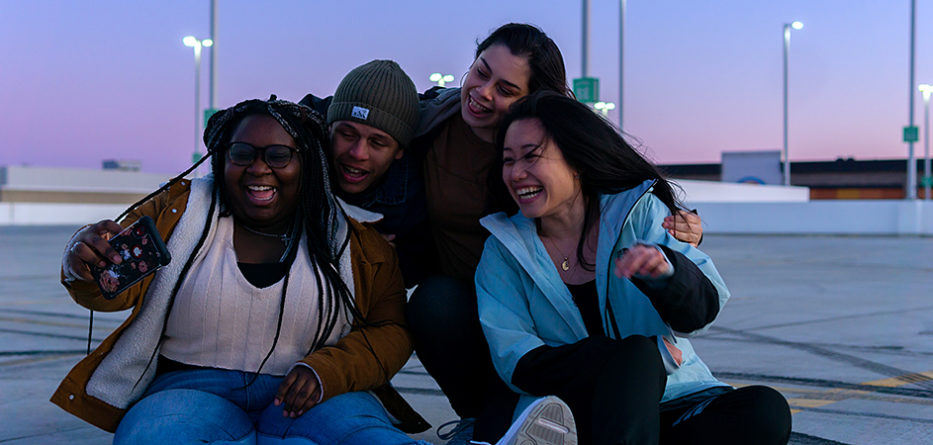Once you used to have to wait until after work to call your friend. Now type a message and it is received instantly. Time is irrelevant and you can reach people anywhere in the world. No wonder social media became part of our lives so quickly.
“Social media provides a tool for young people to connect with one another and these connections happen right throughout the day,” says Qwayne Guevara, Local Engagement Leader, Catholic Youth Parramatta (CYP).
James Camden, Director, CYP, adds that the regular connection provided online overcomes those logistical challenges of time and distance that often stall friendships.
James and Qwayne recall how they, like the rest of the world, had to adapt their relationships to pandemic restrictions when even Mass and birthday parties were held online.
Once restrictions were lifted, however, youth leaders couldn’t wait to meet face-to-face again. It showed them how meeting in person is still preferable, but social media can keep people who can’t physically meet, in touch.
In particular, James found young people with a strong faith bonded together on social media, brought together by their common beliefs in Jesus.
Online authenticity
The trick to authentic and positive relationships online, say James and Qwayne, is to allow ourselves to be fully truthful (safely) on social media about our lives, to ourselves and how we show ourselves to others.
“Social media doesn’t present the fullness of a person’s life, and often this can lead to comparison,” Qwayne says. “The difficulty lies in the ‘highlights reel’ nature of social media which has been cultivated by influencers and large organisations driven by profit.
“It can be difficult to tell what’s real from what is not. In many ways, this can affect how a young person sees themselves. It also impacts how confidently, kindly and authentically they engage with others in ‘the real-life’ areas of their lives,” she says.
Acting against negative experiences
Statistics compiled by the Australian eSafety Commissioner in 2020 showed that just over four in 10 teens had at least one negative online experience in the six months to September 2020, with this increasing to over 50% of those aged 14 to 17.
The good news is that a large percentage of young people are prepared to act if they feel unsafe. More than 80% of teens took some form of action after a negative online experience, such as blocking another user or speaking to family and friends about the situation.
Supporting others on social media
The eSafety Commissioner found nine in 10 teens reported that they have done at least one positive thing online. They may have supported or listened to a friend who had a bad experience, posted positive/nice comments about others and made sure that peers are not excluded online.
Qwayne hopes that by working in youth ministry, she is accompanying young people both in person and online to grow in confidence in themselves and recognise that they are created out of love.
“As they gain confidence in themselves, we hope that they understand that they need to not conform to popular culture. Instead, they are comfortable with posting and sharing content authentically,” she says.
Dealing with the pressures of social media
The eSafety Commissioner website, (esafety.gov.au) has dozens of articles about the issues that can arise with online relationships. Here’s what they say about dealing with the pressures of social media.
- Check yourself. If you’re feeling unsure about posting something, ask yourself: “Why am I doing this?” Stick to posting things that reflect who you really are, and make you feel good about yourself.
- Social media is not real life. Think critically about what you see online — a lot of posts are not real.
- Unfollow accounts that make you feel bad. Ask yourself whether accounts you follow are making you feel positive or negative. Unfollow accounts that make you feel bad about yourself and follow the accounts that make you feel good.
- Turn off your notifications and have a phone-free day. If you feel like you are spending too much time scrolling through your feed and it is contributing to the pressure you feel, try switching off. It can be good to log off for a while.
- Be authentic online. Make sure you post things that make you feel good about yourself.
- Talk to someone. Pressures from social media can make you feel isolated, and it can seem like everyone else is having a fantastic time. Talk to a friend or family member, or reach out to free, confidential online and phone counselling services for help and support.
- Kids Helpline – 1800 55 1800
- Beyond Blue – 1300 22 46 36
To find out more about looking after yourself online so you can have a positive experience, go to esafety.gov.au
This article was originally featured in the Ordinary Time/Winter 2021 Edition of the Catholic Outlook Magazine.








